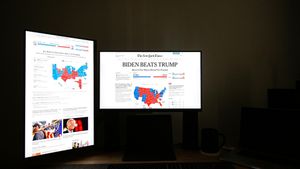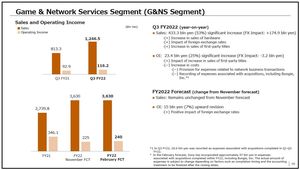U.S. Trade Representative nominee Jamieson Greer has sounded the alarm over potential trade tensions with South Korea, citing regulatory moves targeting American online technology companies.
During his recent Senate confirmation hearing, Greer emphasized the need for vigilance against South Korean and European Union regulations he believes threaten the competitiveness of U.S. tech firms. Responding to Senator Mike Crapo's concerns about unfair taxes and requirements, Greer asserted, "Those measures will not be tolerated," underscoring the administration's intent to retaliate against perceived unfair practices.
According to Crapo, South Korea and the EU's actions include imposing conditions on U.S. firms but allowing exemptions for domestic companies, along with Chinese firms. This has sparked debate on the future of the Free Trade Agreement (FTA) between the U.S. and South Korea.
Comments from Chung Deok-gu, former Minister of Commerce and Industry, point to limited immediate demands from the U.S. on South Korea concerning the FTA. During a press conference, Chung noted, "There is not much the U.S. government needs to ask for South Korea because South Korea is almost tariff-free on U.S. goods," setting the stage for possible decreases in trade negotiations precedence under the current administration's agenda.
Chung added, "Our government authorities should always monitor, issue early warnings, and cross the wave of Trumpism," highlighting the importance of proactive measures by South Korean officials to adapt to changes stemming from U.S. policymaking.
Meanwhile, as experts convened to assess Korea-U.S. relations, Kim Sung-han, Professor at Korea University, revealed concerning public sentiment, stating, "Do you know more than 70 percent of Koreans favor independent nuclear armament?" He warned such views could significantly impact several dimensions of bilateral relations.
While the narrative surrounding trade relations is complicated, Yoon Byung-se, another prominent figure participating in discussions, suggested current low prioritization could prove advantageous. He stated, "It's not necessarily a bad thing...that it's not on the 'radar network' of the Trump administration right now." This reflects sentiments among experts who argue maintaining dialogue may allow for more favorable discussions at opportune moments.
The conversations among these key figures occurring during their recent visits to Washington and New York focus on exploring options for security and economic cooperation moving forward. Yoon elucidated the changing dynamics from the first Trump administration, recalling how it was about three months after his inauguration when official North Korea policy was first defined.
Overall, as these discussions emerge, trade tensions remain palpable. U.S. trade policies and responses concerning South Korean regulations could define the next chapter of trade relations. Observers are left to wonder if the shift from urgency to more laid-back engagement will lead to constructive changes or increased vigilance.



